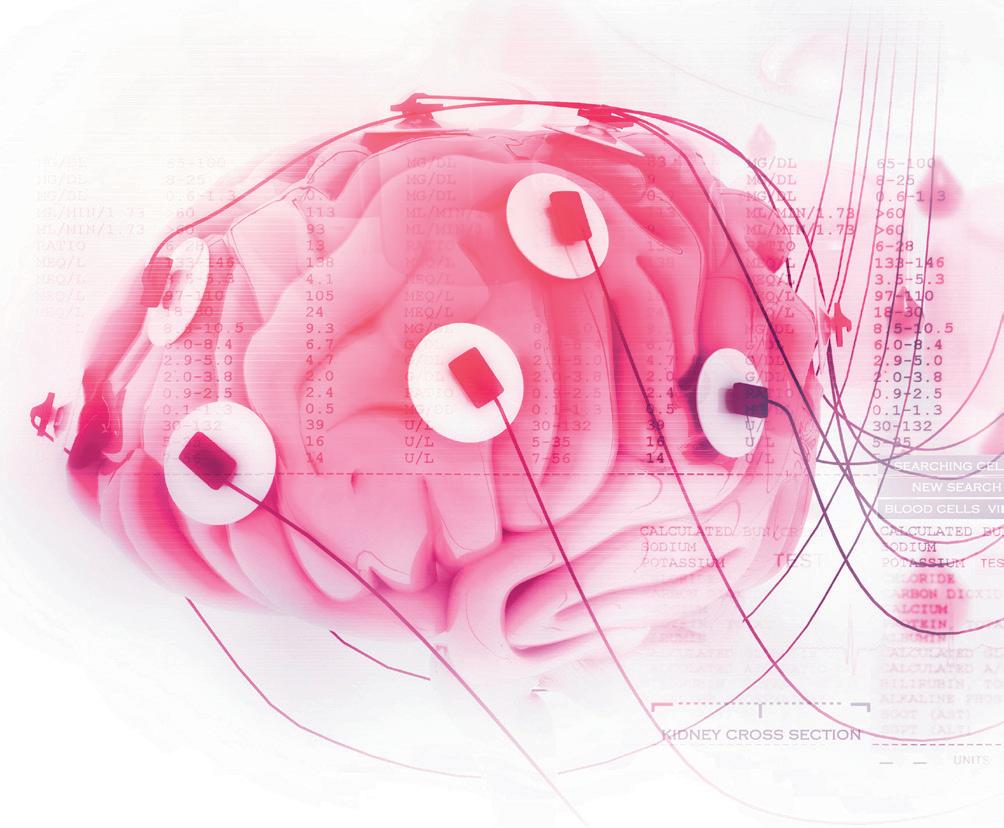
5 minute read
COVER STORY
from EPM May 2022
by EPM Magazine
The last time we spoke to Merck KGaA the company was in the early stages of launching its Design for Sustainability initiative (DfS) – a project intended to revamp the way research & development (R&D) was conducted throughout the business, all with the aim of developing more environmentally friendly products.
Then, when speaking to Whitford, head of sustainability and social business innovation, Merck he told us of some of the spot successes the company had had with designing more sustainable products. Now he tells us of a fundamental change in the business. DfS is now being “driven into our processes and becoming a part of the everyday work that the scientists are doing, [it’s] not just optional now but really required,” Whitford says.
What this means for Merck is that sustainability is being systematically embedded throughout the company’s R&D teams, which each product undergoing a type of evaluation into its sustainability credentials. This doesn’t mean every product will be environmentally friendly, but Whitford insists that the number of “products coming out of our R&D pipeline are defi nitely going to be greener alternatives.”
Of course, the trouble is that for a company involved in developing so many products used within life sciences - biologics, chemicals, instrumentation, equipment – the structural requirements needed to make
EPM sits down with Merck’s Je rey Whitford to fi nd out about where the company is up to in terms of its sustainability initiatives.
KEEPING ON THE GREEN TRACK:
DfS happen are huge. One of the things Merck is doing now for DfS is making it operational so that the scientists involved in developing all these products feel supported and have the tools available to do the science with a sustainable approach.
“One of the things we hear from our scientists is it’s hard enough to do the science, so the sustainability layered on top, we don’t have that capability. That’s where we from the sustainability department side of things think about how do we support them so we can build that capacity, develop more trainings, get them more experience, which means then we build more systematic approaches to sustainability,” Whitford says.
Merck has been somewhat of an early adopter in terms of how it presents its sustainability goals to the public.
We’re speaking to Whitford shortly after the COP26 conference fi nished in 2021 – a conference which saw many life sciences fi rms sign up to green initiatives – and sustainability has fi rmly established itself in the lexicon of businesses all across the world.
Many companies now sport longer term goals to reduce their carbon footprints and Merck is among those businesses that have ambitions stretching as far as 2040 – which by then the company wants to have achieved climate neutrality.
But whilst its ambitions are worthy, pharma’s path to climate neutrality isn’t clear.
“To be honest I don’t think anyone has a clear roadmap to 2040 and to zero [emissions],” Whitford suggests. Merck though, he thinks at least has a plan to build more clarity and more consistency in its approach. With DfS acting as the cornerstone of the company’s sustainability eff orts, any product coming out of Merck will be assessed in terms of its environmental impact. This means that over time, Merck will get a clearer idea for how each product impacts Scope 1, 2 & 3 emissions – in other words the greenhouse gases it produces directly, its indirect emissions such as those covered by heating and electricity, and the emissions the company is indirectly responsible for throughout its value chain.
Right now, DfS is being applied to the new products Merck is developing but the plan is, over time, to apply it to the company’s legacy products.
“One of the challenges with those products is that there are certain products that are basically impossible for us to make changes to because they’re already specced into governmental approvals,” Whitford explains.
However, for products that aren’t burdened by regulatory barriers, Merck can go back and examine whether they can be developed through more sustainable means. There are about 53 products that currently exist in that portfolio, Whitford says, explaining that he hopes to see this number dramatically increase in the future.
Coming out of COP26 Whitford feels encouraged by the increased activity he’s seen within the pharma sector. Disregarding the announcements made at that conference, Whitford says that as a supplier, Merck is now being asked more questions by the likes of major pharma companies into how they can decrease their environmental footprint. As Whitford puts it - “we’re feeling it.”
It’s defi nitely a boon that the likes of AstraZeneca, Takeda, Johnson & Johnson, and other of the major players, have now signed up to a global initiative aimed at decarbonising pharma’s global supply chain. Whitford knows that the supply chain is the industry’s biggest hurdle when it comes to sustainability, so having the big players announce their intentions shows the sector’s commitment to change.
“We need people to plant the fl ags for others to see where people are headed. That signals to the market that this is going to be something that people are doing. That changes peoples’ preparation, it changes the reference point because people can point back and say we put ourselves out on the line on COP26, there are people holding us accountable, the whole world is looking at us,” he says.
The announcements made at COP26 then show an industry which is ready to commit to becoming more sustainable.
And, much like what Merck is doing through DfS, the industry has nowhere to run if it fails to deliver on its sustainability targets.
This space for accountability will be so important going forward.
Merck seems prepared to show where it’s succeeding and where it isn’t, and the company’s commitment to sustainability mean that it must stay on this path going forward. Whitford knows that if the company or industry strays too far, then they’ll be called out for it.





